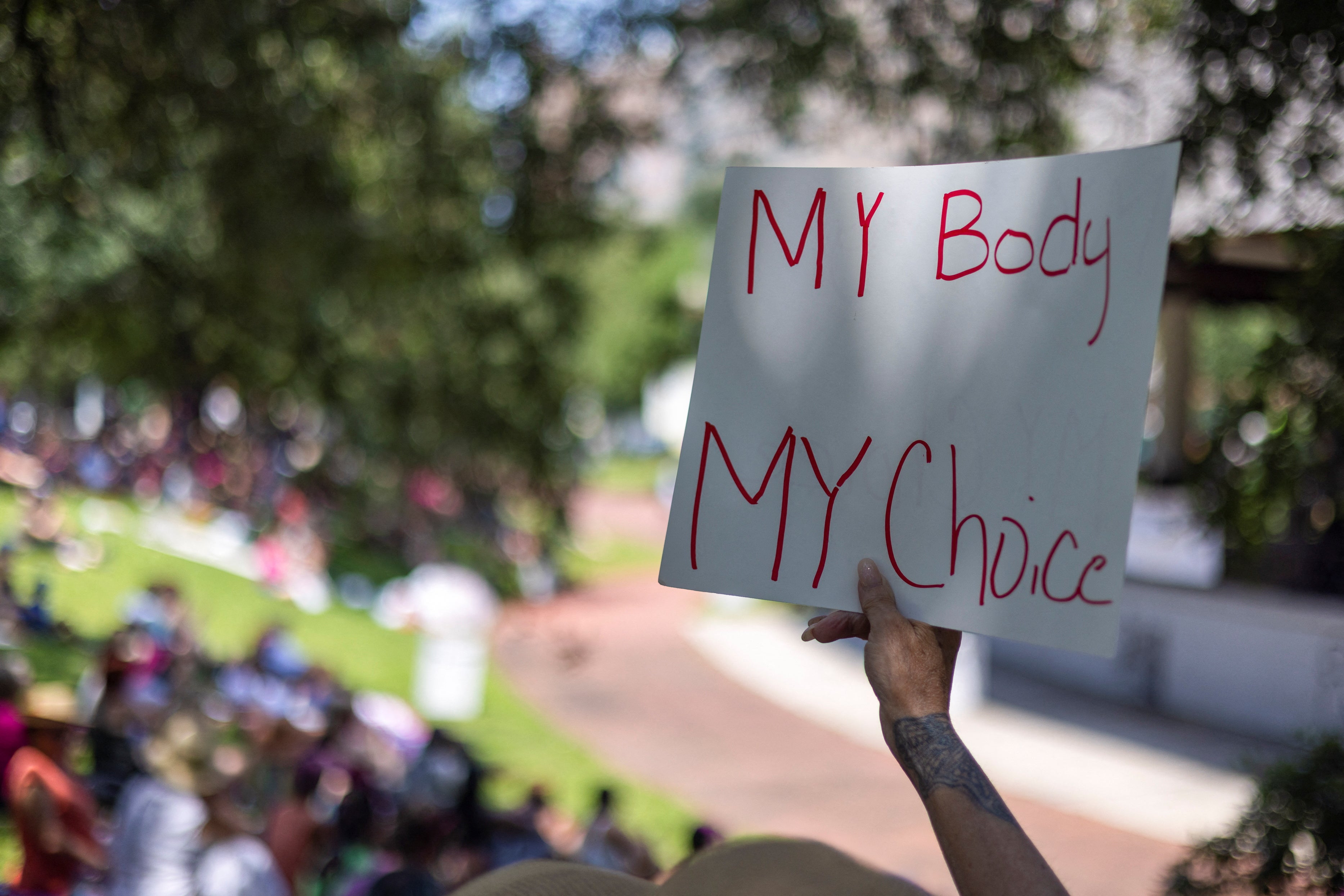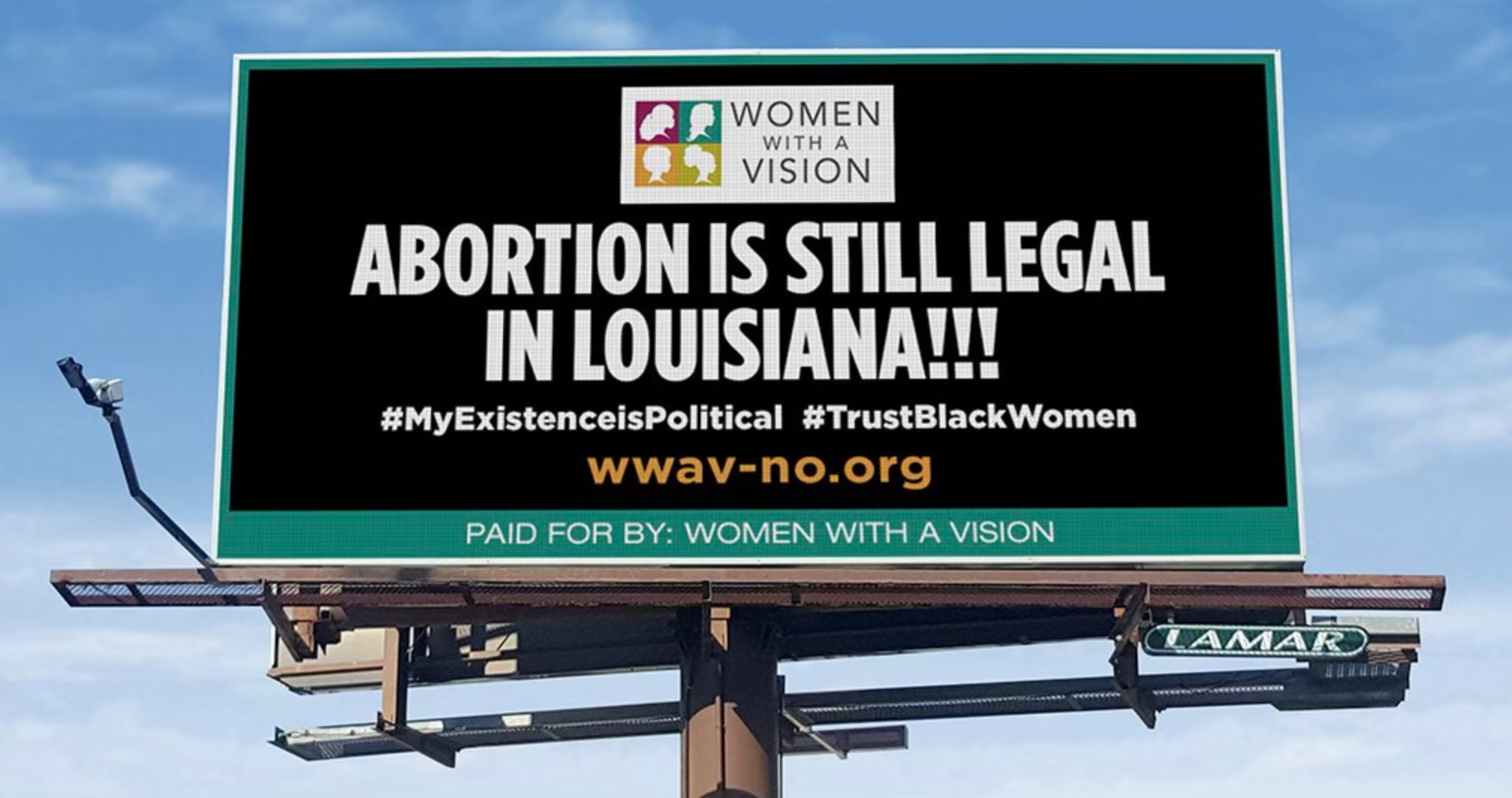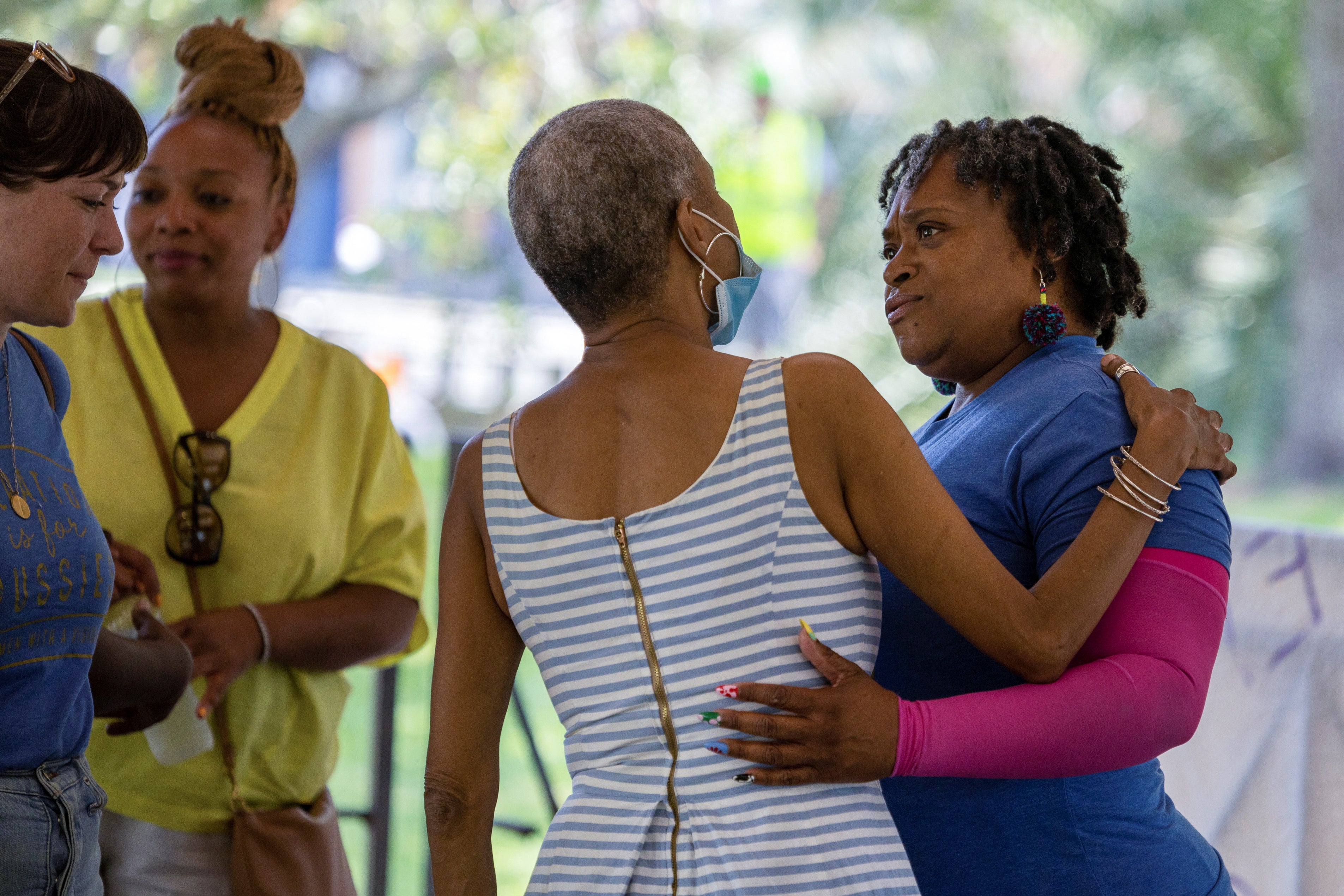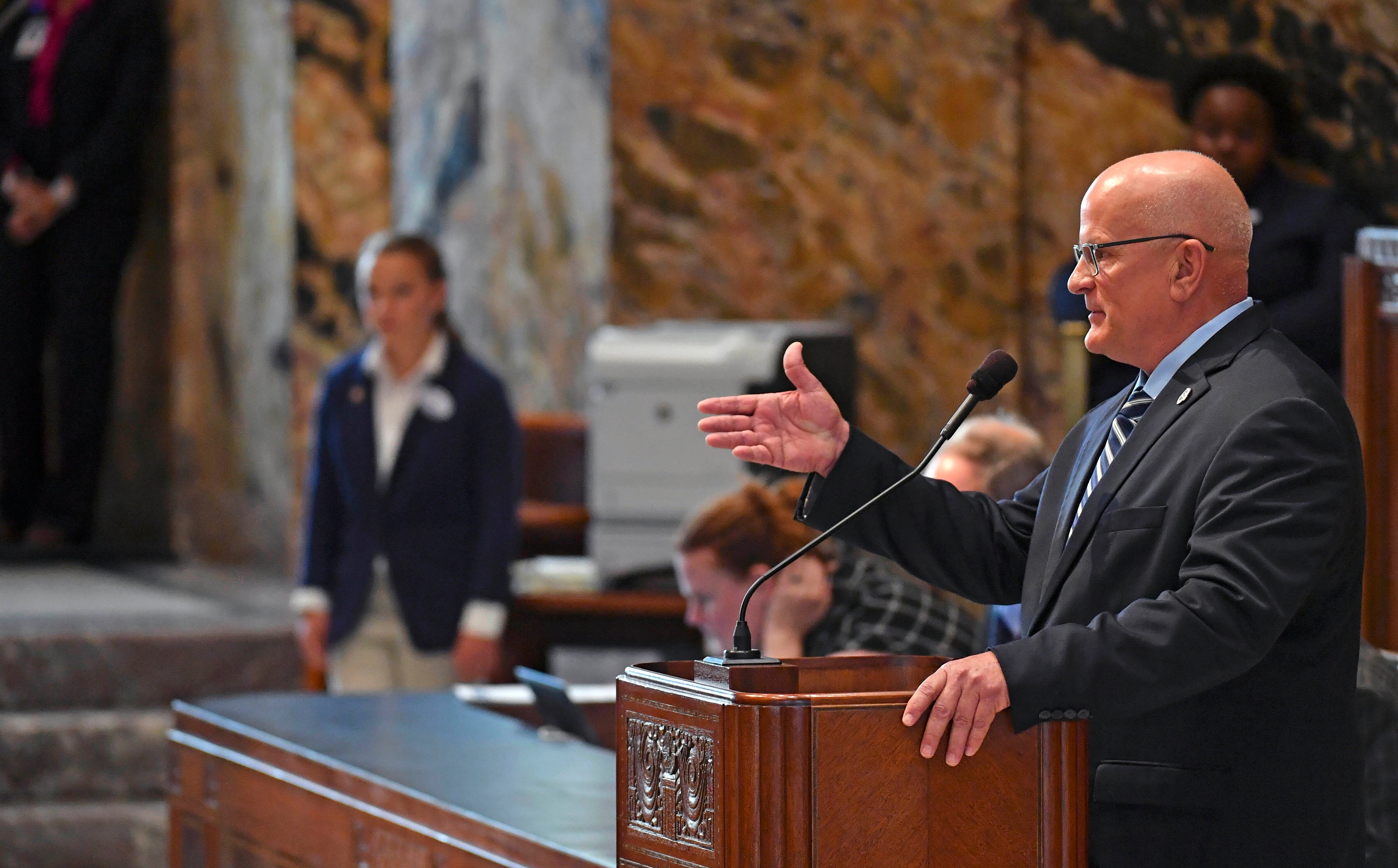A ‘bat****’ bill shows how far Louisiana lawmakers will push an anti-abortion agenda
Patients and providers in the state are already navigating some of the most severe restrictions in the US, Alex Woodward reports


Your support helps us to tell the story
From reproductive rights to climate change to Big Tech, The Independent is on the ground when the story is developing. Whether it's investigating the financials of Elon Musk's pro-Trump PAC or producing our latest documentary, 'The A Word', which shines a light on the American women fighting for reproductive rights, we know how important it is to parse out the facts from the messaging.
At such a critical moment in US history, we need reporters on the ground. Your donation allows us to keep sending journalists to speak to both sides of the story.
The Independent is trusted by Americans across the entire political spectrum. And unlike many other quality news outlets, we choose not to lock Americans out of our reporting and analysis with paywalls. We believe quality journalism should be available to everyone, paid for by those who can afford it.
Your support makes all the difference.The phones at the office of Women with a Vision were “ringing off the hook” when the staff at the New Orleans community health centre returned to their office on 3 May, the morning after a leaked draft opinion from the US Supreme Court signalled the end of constitutional protections for abortion access.
“People were sending messages through social media: ‘Is it gone?’” director Deon Haywood told The Independent.
The following day, a state legislative committee approved a bill to classify abortion as homicide, with language that criminalised fertility treatments, miscarriages and certain forms of birth control, and potentially sending patients to prison.
Louisiana House Bill 813 – part of an accelerationist anti-abortion movement calling for its “abolition” by criminalising care and imprisoning patients and providers – faced widespread condemnation, including from anti-abortion groups and the state’s anti-abortion Democratic Governor John Bel Edwards.
On 12 May, the state’s House of Representatives effectively rewrote the bill to mirror similar anti-abortion legislation making its way through the state legislature. The bill’s author then withdrew it from a vote, effectively killing it, for now.
But anti-abortion legislators instead are already advancing a similar bill, which imposes prison time and fines for healthcare providers for abortion care, and they rejected legislation earlier this year that would explicitly prohibit abortion patients from facing criminal charges.
The debates have also glimpsed the future of potentially severe legislation from anti-abortion policymakers emboldened by the Supreme Court’s forthcoming decision, which has magnified Louisiana’s fragile system of care.
Governed by an overwhelmingly conservative legislature that considers itself “pro-life” with an anti-abortion Democratic governor, the state already has some of the most restrictive laws governing abortion care – with some of the worst childhood poverty rates and poor rates of maternal health – in the US.

Women with a Vision – which has defended abortion rights and sex workers in court while providing reproductive health assistance and advocacy from its office in Uptown New Orleans – is among abortion rights advocates in the state who have long expected the end of Roe, while watching the state fail to meet the needs of the people who live there.
The group launched a billboard campaign (“ABORTION IS STILL LEGAL IN LOUISIANA!!!”) and plans to keep Plan B and contraceptives in stock, with a robust harm reduction outlook for a future in which legal abortion care is hundreds of miles away.
“We want to keep it in your face and on people’s minds,” Ms Haywood told The Independent. “And we want people to know that abortion is not going away. It just won’t be as safe as we’d like it to be.”
An already ‘dire situation’ under Roe
Without access to legal care in Louisiana, patients will have to travel farther than patients in any other state to access abortion care in a place where it is protected under the law.
If Roe v Wade is overturned, Louisiana and at least 12 other states with so-called “trigger” laws would make abortion care illegal. The state’s three remaining clinics would be forced to close.
Louisiana patients already are required to undergo an ultrasound and state-directed counseling, then wait 24 hours before an appointment – which means patients must make at least two visits to clinics within the state. Patients already are facing longer wait times for a first appointment – up to four weeks in some cases – as patients from Texas seek care in neighbouring states following restrictive laws in that state.

Abortions in Louisiana also are not covered for patients with health insurance plans through the state’s Affordable Care Act exchange, and patients also cannot use telemedicine appointments to obtain prescriptions for medication abortion, the most common form of abortion, requiring a two-pill combination of mifepristone and misoprostol.
Proposed legislation would also ban abortion medication to be shipped into the state.
“We’re already facing a really dire situation here,” reproductive health attorney Ellie Schilling told The Independent.
“For now, clinics and other organizations that help patients are really just trying to keep their heads down and keep serving the people that they can, for now, but with the realization that that is likely to change dramatically, very soon, and very quickly,” Ms Schilling said. “The situation is fluid. That’s just never a state that’s encouraging to patients who are seeking time sensitive medical care.”
Ms Schilling said she recently spoke with a 16-year-old patient who was nearing 16 weeks gestation, unable to find an appointment in the state before they reached the gestational age limit of 22 weeks. Current state law bans later abortions in all cases unless the pregnancy threatens the life of the patient.
“We had to tell her, ‘You need to get to Albuquerque.’ So that’s already happening,” Ms Schilling said. “The timing will be difficult for a lot of people getting caught up in the immediate term, and then of course, in the long term, it’s just going to result in a lot of expensive and unnecessary travel and time off of work, and for some people that will will prevent them from being able to get the the abortion that they need.”
Roughly 62 per cent of American women live within 10 miles of an abortion clinic. If state-level bans go into effect without Roe protections, that figure would be cut nearly in half and triple the typical median distance a patient would have to travel, up from roughly 39 miles to 113 miles.
Black women would experience the most dramatic increase in distance to care, followed by Hispanic women and those living in poverty. Roughly 60 per cent of the New Orleans-area population is Black, and nearly one-quarter of its residents live in poverty.
From the New Orleans metropolitan area, a patient would have to travel more than 900 miles to Illinois or 1,400 miles to Colorado, the nearest states with state-level protections for the right to an abortion.
Meanwhile, huge swaths of the state have little to no access to hospital obstetric services, OB-GYN doctors, birth centres and other maternal healthcare, according to a 2020 report from March of Dimes.
“There’s there’s been lots of lip service given over the years, particularly with laws like the ‘admitting privileges’ law, that proponents of abortion restrictions have claimed about follow-up care being so important and continuity of care being so important,” said Ms Schilling, referring to a blocked 2014 law that required Louisiana abortion providers to be able to admit patients to local hospitals, which are wary of providing them.
With the latest wave of anti-abortion legislation, “it becomes clear that that’s not actually a concern of theirs at all,” she said. “If you’re forcing people to travel thousands of miles, then you’re not concerned about them actually being able to access that provider or that type of follow-up care weeks later.”
Criminalising care will ‘destabilize communities that are already unstable’
Danny McCormick, the Louisiana legislator behind the failed bill, was confronted by another legislator who warned that under the bill’s language a person with an intrauterine device, or IUD, a form of birth control, could be prosecuted.
When the legislator told him an IUD is not a form of abortion, Rep McCormick replied: “That’s your opinion.”
In another exchange during the debate, legislators sought to clarify that the bill’s language criminalised in vitro fertilisation. “Parents can be arrested for trying to have a baby,” said state Rep Tanner Magee.
Roughly two in every 100 children born in the US are conceived through IVF, according to the US Centers for Disease Control and Prevention.
The leaked Supreme Court opinion prompted the American Society for Reproductive Medicine to issue an urgent bulletin warning that “measures designed to restrict abortion could end up also curtailing access to the family building treatments upon which our infertility patients rely to build their families.”
Democratic state Rep Mandie Landry, an abortion rights advocate who represents the New Orleans area in the state House of Representatives, described the bill to The Independent as “completely bat**** insane.”
She received messages from women around the state, including other state legislators, “who are like, ‘This is insane. This is the only way I have my children.’”

Rep Landry filed a bill earlier this year to make “very clear that no woman can be arrested or sued for miscarriage, stillbirth or self-managing her own abortion.” That bill was rejected.
“If someone has a miscarriage, or even if they’ve induced an abortion, and they’re having severe medical problems – we want them to go to the hospital. We don’t want them to stay home and be scared,” she told The Independent.
Criminalising abortion care will “destabilize communities that are already unstable,” Ms Haywood said.
Instead, she asks how to “create sanctuary and safety for people in Louisiana,” bracing against a “trickle-down effect” of criminalisation that disproportionately targets Black families, impacting not only their health but their housing, employment, food security and future in the state.
“I have to look at this in the same way that I look at any law that is damaging to our community,” she said. “I have to look at abortion, abortion rights and losing abortion rights in the same way.”
‘It’s just walls everywhere’
Every woman serving in Louisiana’s state senate opposes abortion rights.
When the Supreme Court opinion leaked, Rep Landry “was so goddamn mad that I sat down and wrote the press release” to announce her candidacy for an open state senate seat for New Orleans, she said.
Since her election to the state House in 2019, Rep Landry has been a vocal advocate for abortion rights and maternal health measures; she promoted a bill to expand Medicaid eligibility – the federal health programme for low-income families – for 12 months after giving birth. The current programme ends after two months.
Medicaid also covers children in households that make up to $5,897 per month for a family of four, eligible for food assistance for formula and nutritional food – programmes that are almost entirely funded by the federal government.
The state does not provide any public funding for abortion care, but the state has allocated more than $11m in federal funding meant for low-income family assistance – roughly $1m a year over the last decade – towards so-called crisis pregnancy centres, anti-abortion facilities that provide false or misleading nonmedical information to dissuade people from seeking an abortion.
The state’s current budget includes more than $1m for such clinics, and legislators are asking for another $1m for the upcoming budget year beginning on 1 July.
Louisiana Senate Bill 342, the “Reaffirmation of Human Life Protection Act,” co-sponsored by anti-abortion Democratic state Senator Katrina Jackson, would impose 10-year prison terms and fines of up to $100,000 for providing an abortion.
The bill defines personhood beginning at the “moment of fertilization” – a definition that could extend beyond legislation to criminalise pregnant women.
“There is already grave risk of prosecution under current law, and the language of [the bill] will only make it easier because it expands who may be a victim under Louisiana law,” abortion rights advocate Gwyneth O’Neill told a House committee on 17 May.
“If you’re being truthful when you say that it’s not the intention of these bills to throw pregnant women into jail, then the only way to do that is to create a clear, unequivocal affirmative exception that exempts pregnant women from criminal prosecution across all criminal statutes for any pregnancy outcome,” she said.
Last month, the same legislative committee rejected a measure from Rep Landry that would do exactly that.
“Everywhere we go, there’s a wall,” Rep Landry told The Independent. “It’s just sad. I don’t know what to do anymore. It’s just walls everywhere.”



Join our commenting forum
Join thought-provoking conversations, follow other Independent readers and see their replies
Comments